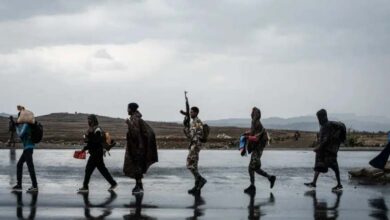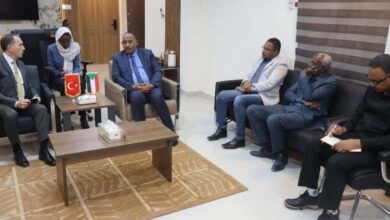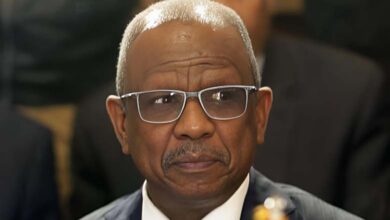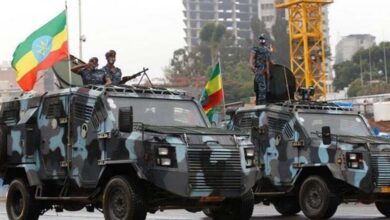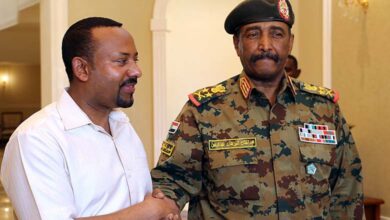Darfur Burns Again: Armed Movements Use Civilians as Human Shields in El-Fasher
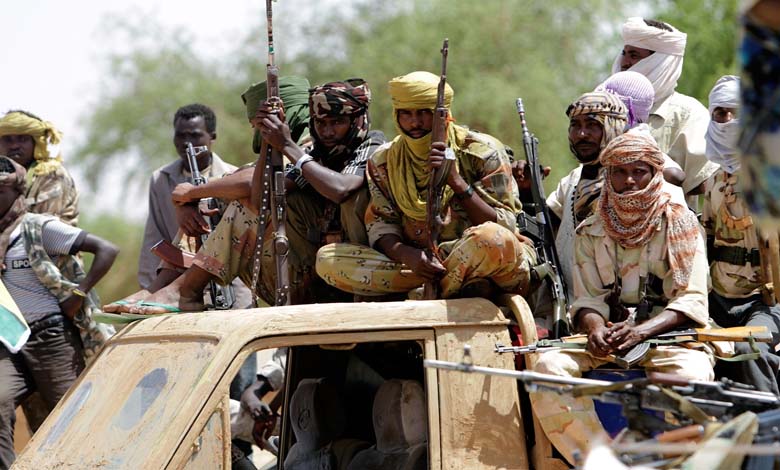
Serious Escalation Between the Sudanese Army and Armed Groups: Accusations of Using Civilians as Human Shields in Displacement Camps
The security situation in Sudan, particularly in the Darfur region, is becoming increasingly tense and complex, amid growing disputes between the Sudanese army and several armed movements that were previously involved in political processes or peace agreements. These disputes have recently reached a critical level, especially with both sides exchanging accusations, raising serious concerns about civilian safety.
-
Sudan War: The Flames Encircle El-Fasher from All Sides and ‘Path of Hope’
-
Sudan under Fire: Army Violations and Civilian Suffering
Army Decisions Fuel Outrage
The latest escalation began when the Sudanese army implemented a series of actions viewed by observers as a significant blow to the armed movements, which had taken advantage of the security vacuum to expand their influence.
These actions included:
- Halting illegal recruitment operations conducted by armed groups in some regions.
- Expelling members of armed movements from northern and eastern Sudanese states, where their presence was considered a violation of the peace agreements.
- Cutting off the supply of weapons and disrupting military logistics channels used by the armed movements.
Leaders of these movements perceived these steps as a direct threat to their political and military power, prompting angry reactions that have impacted the field situation in Darfur, especially in El-Fasher.
-
Attacks on Infrastructure in Sudan: A Military Strategy with a Heavy Human Cost
-
Sudan between the Flames of War and the Map of Influence: A Struggle for Territory or Survival
El-Fasher on Edge: Civilians in the Line of Fire
The city of El-Fasher, the capital of North Darfur, is witnessing heightened tension amid increasing reports that armed movements are using civilians as human shields.
According to local sources, members of these groups prevented hundreds of families from leaving the city as the Rapid Support Forces (RSF) advanced towards their areas. The aim, according to human rights reports, is to use the population as a human barrier against potential attacks from the RSF.
These practices constitute a clear violation of international humanitarian law and are causing major concern among rights organizations that fear civilians may become the primary victims of the escalating conflict.
-
A Turning Point in the Sudan War with the Army’s Recapture of the Presidential Palace in Khartoum
-
Arrests, Executions, and Violations… What Is Happening Inside Sudanese Army Prisons
Militarization of Displacement Camps: Abushouk and Zamzam Under Scrutiny
One of the most alarming developments is the transformation of displacement camps into military bases. Field reports confirm that armed groups have turned the Abushouk and Zamzam camps into military outposts.
These violations were documented through:
- Discovery of military ID cards belonging to fighters inside the camps.
- Uncovering of heavy weapons and military equipment hidden in areas meant to shelter civilians displaced by conflict.
- Use of relief buildings as temporary field command centers.
This dangerous shift threatens the safety of thousands of displaced people living in these camps and effectively turns them into hostages in a conflict they are not part of.
-
Hunger, Displacement, and War: The Triangle of Terror in Darfur
-
Sudanese Analyst: Khartoum Caught Between Fire and Famine… Civil War Exacerbates Human and Economic Suffering
Map of Power and Interests: Why Are the Armed Movements Clinging to El-Fasher?
Analysts believe that the armed groups’ insistence on maintaining their presence in El-Fasher at any cost is driven not only by strategic or symbolic value, but also by political calculations tied to their positions in the Port Sudan-based government.
Their military presence in Darfur—particularly in El-Fasher—serves as a bargaining chip to maintain influence in any future political settlement, whether in the central government or in the restructuring of the military institution.
-
UN Reports Reflect Shock at the Scale of Sudan’s Worsening Humanitarian Crisis
-
Sudanese Army’s Statement on Shambat Bridge Destruction: A Desperate Attempt to Polish a Tarnished Image
Popular and Human Rights Reaction
On the popular level, there is widespread anger and concern among the residents, especially as violations against civilians continue. Locals are calling on international organizations to intervene urgently to protect them, and they strongly reject the militarization of their homes and camps.
Human rights organizations, both local and international, have called for an urgent and transparent investigation into the use of civilians as human shields and urged the United Nations to dispatch monitoring teams to conflict-affected areas.
-
The Attempted Assassination of al-Burhan Sparks Debate on the Involvement of the Islamic Movement and the Army
-
Sudan Stuck Between War and Climate Change: Blockades, Diseases, and Drought
Darfur is at a turning point in its modern history, where the ambitions of armed groups to maintain political leverage clash with the Sudanese army’s firm measures to reassert state authority. In between, civilians remain the weakest link—used as pawns in negotiations and trapped in camps increasingly resembling military barracks.
Unless the situation is brought under control and strict oversight is imposed on armed groups’ movements, Darfur—and El-Fasher in particular—is heading toward a humanitarian and security disaster with severe regional consequences.


